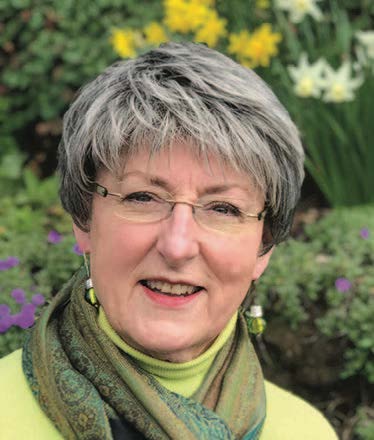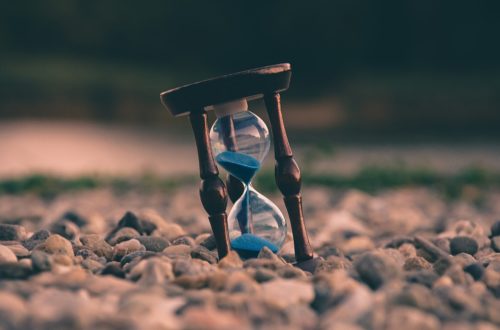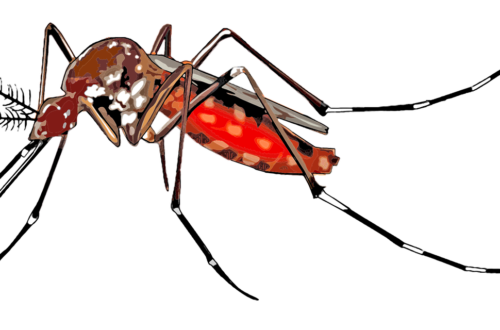What will you remember most about this last year in which all of us were faced with a pandemic that abruptly put a halt to “normal” everyday life? I have to admit that it was pretty unnerving at the beginning when it was all an altered reality. Simple activities such as going to the grocery store made us anxious, and we rushed to get our food and leave as quickly as possible, and then we washed the food when we got home. It was stressful, no doubt about it.
My husband and I both felt such gratitude that we were retired and not having to figure out work, educating children, paying bills, being a healthcare worker or other frontline worker, or so many of the challenges that faced so many people. I wished that I could help those young families, but we had to stay separated. Walking our neighborhood, we delighted in seeing something new: parents outside with their children, teaching them how to ride a bike, playing old games like hopscotch, even having tea parties on the front lawn. Because so many of us were starved for human interaction, everyone greeted each other with a warm wave and an enthusiastic “hello!”. There were so many creative adaptations, for example, the drive-by birthday celebrations. One young friend told me how in her neighborhood, folks would check in to make sure that everyone had what they needed. I’m sure you can think of activities you changed, like at-home haircuts – I got pretty good at cutting my husband’s hair. And we spent more time being outdoors, getting exercise in the fresh air.
We also tried new recipes and learned some new skills, things we had intended to do before but now actually had time for because there were few interruptions. Jon, my husband, delighted in sharing occasional photos of a Happy Hour beverage or our morning cafés au lait, or the gorgeous Caprese salads he made for summer lunches. We decorated enthusiastically for the Christmas holidays, using lots more twinkly lights to add cheery sparkles; I have left some of the lights in place.
The enforced slowing down has given many people the opportunity to reflect on what matters most to them. When there are fewer distractions, one has time to pay attention to the small, simple things that often go unnoticed because we take them for granted. For example, do you remember that the leaves last fall were particularly spectacular? They were so gorgeous that one day before we took our walk, we dressed in autumn-colored sweaters in honor of the foliage. One of my neighbors commented that she had seen some trees walking by! And this Spring, the daffodils and blossoming cherry trees seem more joyous than ever after our long, sequestered winter. When we choose to practice attention together with gratitude, we see more and more. It’s like our eyes and minds are more open.
“Threatening or just mundane, pandemic conditions do not make fertile ground for thankfulness. But gratitude is one of the tools we can use in both of these circumstances. When we give thanks for everyday things, we make them visible again. When we’re able to do that, numerous studies suggest, we give our happiness a little boost and train our brains to see the good, even amid so much bad.” [1]
From Thnx4: “In reviewing public gratitudes during the pandemic period, we discovered a vivid progression from shock to acceptance—and a growing appreciation for the good things we get from other beings, including our pets, and from nature and society.” The pandemic has forced people outdoors, raising connections and awareness. [2]
In his 2011 TED talk, photographer Louie Schwartzberg says, “Beauty and seduction are nature’s tools for survival because we protect what we fall in love with. It opens our hearts and makes us realize we are a part of nature and not separate from it. When we see ourselves in nature, it also connects us to every one of us because it’s clear that it’s all connected in one.” [3]
There is a subtle power in noticing what makes you happy and what you are grateful for. Pay attention to how you feel when you notice something. Recognize that you do have a choice about how you react to a situation. Making a list with bullet points of what you have gratitude for can bring you into the present and more aware. Some of the things I am grateful for:
- Holding hands on our walks
- Twinkly lights
- Seasons, even the rainy one because my plants need the rain
- The life in plants – what appear to be sticks become flowering branches
- Simple kindnesses like a wave or someone holding a door
- Amanda Gorman’s inauguration poem
- Enhanced awareness, such as watching sunlight on the wall, waxing, and waning, much as life does
- Going to look at the holiday lights that people put up very early in the season
- 1000-piece puzzles that relieved some of the pandemic boredom
- Learning that dandelions are important to bees and good for improving soil
- The prints that fallen leaves make on the sidewalk
One of my most recent experiences of gratitude happened just this week. I scheduled a free inspection from NW Natural to check our gas equipment. The inspector came and checked the stove, the furnace, and the water heater. He found that the water heater was spilling carbon monoxide! What if I hadn’t happened to schedule that appointment? So, while I may have to get a new water heater, I am so grateful that I did not experience carbon monoxide poisoning and that I just happened to scroll down the page on the NW Natural website.
My fervent hope is that these acknowledgments of small joys and of gratitude will not fade away, and that lives do not become as hectic as they were before the great slowing, that we will remember what we have learned during this challenging episode, and that we will not take life for granted.
Multnomah County Library offers a yearly event entitled Everybody Reads. The 2021 book is The Book of Delights by Ross Gay. You can pick up a copy at a branch.
For more info: multcolib.org/everybody-reads
Another Resource: positivepsychology.com/benefits-of-gratitude
[1] greatergood.berkeley.edu/article/item/what_are_we_grateful_for_during_covid_19
[2] (www.thnx4.org/)
[3] www.sustrana.com/blog/gratitude-for-the-gifts-of-nature/
Betty Shelley is a Master Recycler (class #2), a former Metro Recycling Information Specialist, an Agent of Change, and the founder of Reduce Your Waste Project. Betty found Northwest Earth Institute in 1993 when it was founded in Portland. The NWEI discussion courses made her more aware of the choices we make as well as the consequences of those choices. Since 2006, Betty and her husband, Jon, have had just one 35-gallon can of garbage per year. The Shelleys offer the class “Less is More: Getting to One Can of Garbage a Year”. www.reduceyourwasteproject.com







